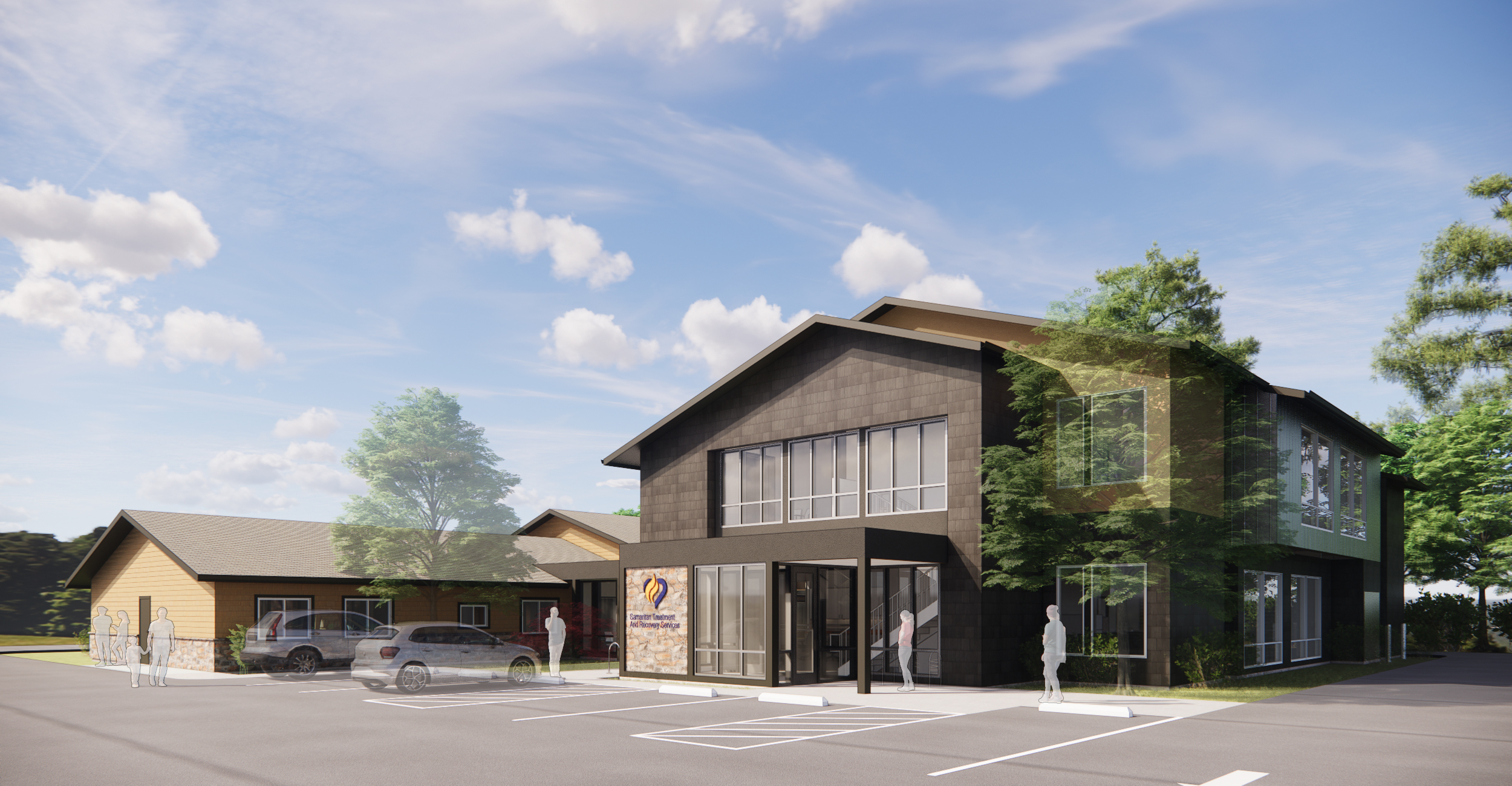Coastal Samaritan Treatment and Recovery Services Facility

A residential treatment facility for substance use disorder
Who this serves
Adults 18+ with substance use disorder from across Oregon, with priority to residents of Lincoln County. We expect to serve 200 residential patients and 600 outpatients each year. As a nonprofit health care provider, Samaritan Pacific Health Services doesn’t turn anyone away for inability to pay or insurance type.
What
Establish a 16‑bed Samaritan Treatment & Recovery Services facility in Lincoln County to provide residential treatment and intensive outpatient programs, including group and individual therapy, medication-assisted treatment and peer-delivered services. The Pacific Communities Health District purchased a facility and funds are being raised to build an addition for a commercial kitchen, meeting spaces and offices as well as to remodel the existing living space. Nonprofit Samaritan Pacific Health Services is committed to operating the facility.
Where
In Newport, within a short driving distance of Samaritan Pacific Communities Hospital.
When
Completion of the facility is expected in the spring of 2025 based on available funding for construction. Residential services will be offered 24 hours a day, seven days per week. Outpatient services are offered Monday through Friday, including evening sessions.
Why
- Residents in need: Data gathered by our Regional Mental Health/Substance Use Coalition shows that between March and August 2021, 12,225 Lincoln County residents were screened for substance use disorder, with 1,297 individuals screening positive for drugs, including alcohol, and 886 people were diagnosed with substance use disorder.
- No residential treatment in Lincoln County: According to the Substance Abuse and Mental Health Services Administration of the U.S. Department of Health & Human Services, Oregon ranks second in the country for substance use disorder, with 18.2% of the population addicted to drugs or alcohol. Yet, Oregon ranks 50th in the nation for access to treatment programs. Inpatient treatment is a critical first step in the recovery process for many individuals, but there are currently no inpatient services in Lincoln County, and limited outpatient services.
- Death and overdoses rising: The state’s Chief Medical Examiner, Dr. Sean Hurst, recently testified to the Oregon Legislature that between, 2019 and 2020 alcohol-related deaths in Oregon increased 73% and drug overdoses were up 39%.
- Economic imperative: According to surgeongeneral.gov, addressing “substance misuse and substance use disorders effectively for all Americans aligns with a strong economic imperative. Substance misuse is estimated to cost society $442 billion each year in health care costs, lost productivity, and criminal justice costs.”
Campaign goal
Historically, inpatient treatment centers require financial partnerships to create and sustain. As part of its nonprofit mission, Samaritan Pacific Health Services doesn't turn anyone away for inability to pay or insurance type. Samaritan is committed to operating the treatment and recovery center in Lincoln County, but needs partners to finance the facility itself. Expected cost to build the addition and remodel the facility is more than $11.7 million.
“I didn’t have a plan to die but I didn’t have a plan to live either.” That was how Gina Myers – mother or five children – described her life before entering residential treatment. She now has custody of her children and is a certified drug and alcohol counselor and doula specializing in helping pregnant women who are incarcerated.
If you would like to help people like Gina rebuild their lives and families and strengthen Lincoln County, visit samhealth.org/SupportSTARSCoast. Or mail your gift made payable to the Pacific Communities Health District Foundation to the Samaritan Foundations Central Office.
Samaritan Foundations Central Office
815 NW Ninth St., Suite 136
Corvallis, OR 97330
Frequently Asked Questions
Questions with an asterisk* were posed by people identifying themselves as neighbors of the facility. Please send us any additional questions you may have through Contact and we will respond as quickly as possible. Thank you!
